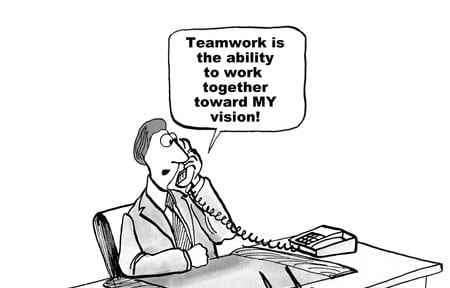Addressing Complaints at Kindergarten Association.
Opinion article.
By Dr Sarah Alexander.
November 13, 2017.
The price of the Auckland Kindergarten Association Board sleeping at the wheel and letting the high regard in which the kindergarten system in Auckland is held go down the gurgler has been the resignation of its chief executive, Tanya Harvey.
The key complaints of so many people revolved around:
- Bullying.
- Lying.
- Lack of consultation over major changes.
- Use of Ministry of Education funding e.g. appropriation of equity funding for fees for a newly introduced 7th hour in the kindergarten day.
- Extravagant spending e.g. on external consultants.
- Formal achievement testing of children at some kindergartens.
- Head office grabbing of individual kindergarten parent and community fund-raised money.
- Treatment of teachers (e.g. changes to teacher leave balances).
- Loss of well-regarded teachers.
- Increased use of unqualified staff and relievers as teachers.
- Disregard for children’s welfare and quality of education.
Ministry of Education failed in its oversight of the Publicly-Funded Free Kindergarten Association and protection of teacher conditions and safety under the State Sector Act
In May this year, the AKA had been shortlisted for a Prime Minister’s Award for Excellence in Governing. The Ministry of Education praised AKA for what it was doing! As complaints came to the Education Minister’s attention, the Ministry of Education announced that no Award for Excellence in Governing would be made this year.

Due to the AKA’s movement away from its community base (amongst other things), Ministry of Education officials should have had words with Ms Harvey and the AKA Board, and put them on notice to improve the standard of governance and management. But instead the Ministry of Education appeared to distance itself as far as it could and said nothing publicly on the matter.
There was never any mention of consequences – such as potentially withdrawing the AKA’s recognition as a ‘free kindergarten association’ – which would result in its re-classification as a provider of education and care centres with funding at a lower rate, exclusion of its teachers as employees of the State under the State Sector Act, and loss of other privileges such Ministry of Education land use, and $1.00 annual leases with the Auckland City Council.
Addressing Complaints at Kindergarten Association
While changing the AKA’s chief executive can provide an environment of hope, that is not the same thing as actually addressing the complaints and resolving them.
That is the phase that starts now.
The way it needs to start is with those left in charge actually visiting kindergartens, getting down to child level and seeing what it is like for children throughout the day, listening to parents, teachers and all affected staff, realising past mistakes, and doing more.
Ms Harvey’s resignation is therefore only the beginning. Much now will depend on whether the message has got through.
It’s well known that if you don’t know what to do, can’t be bothered or don’t have the fortitude to do what you know must be done, or if you don’t think you can make change yourself- you set up a review.
A purpose of a review is to take oxygen out of the fire. Committees and Government Ministers are well known for setting up reviews when they want complaints or problems to disappear but are not particularly interested or willing to address them.
This is what the AKA Board decided to do prior to its CEO’s resignation. A Terms of Reference for a review was drafted and as far as it is known the draft Terms of Reference was shared only with the NZEI and a tiny number of NZEI AKA members. The review was to be an internally driven one, focused on the CEO’s network review and roll out of changes to kindergartens. The review was to take the heat out of complaints in the weeks leading up to the Christmas break and so the board could decide what to do and say, if anything new, in the New Year.
As part of its internal review by an independent early childhood education expert from outside of the AKA, the CEO was going to have to allow the reviewer access to all her files, including access to her computer hard drive – which may or may not have been a reason for the CEO to jump ship when she did.
A review is fine, but it comes down to:
- what the Terms of Reference contains,
- the time frame,
- whether adequate consultation of all parties affected (including every kindergarten committee chairperson) has taken place and the level of agreement with the Terms of Reference,
- whether there is an open tender process for the review
- who is involved in the selection of the reviewer and the interests they represent,
- how any members of the board and managers may influence the internal reviewer’s findings and report prior to release to kindergarten committees and others, and;
- the determination of the board to take action.
The board needs to consider if it will continue the pattern of engaging in extravagant spending. A sign of the Board learning from past mistakes would be to not engage an external consultant or consultancy company to advise on things that a new CEO could/ should pick up on in any case e.g. in regard to staffing etc.
In the light of the CEO’s resignation the board will need to take a few weeks at least to consult and revise its draft Terms of Reference. First and foremost the internal review should focus on governance and how the board can function better so it will not be in danger of sleeping at the wheel again.
The first important move toward transparency would be to make available for parent committee and public/taxpayer scrutiny the ‘research’ which the AKA Board says it commissioned. Although the market research document has strangely been kept secret it is said by the AKA Board that it recommended certain changes were necessary for the AKA to continue to meet the needs of parents and their children, to address falling roles, and forecasted deterioration in the AKA’s financial position if it did not. It is important that the market research be made available so everyone can see if the board was wise in following the recommendations, and if the marketing company in fact took into account such things as a parent backlash, change in the funding system, the potential removal of AKA kindergartens from special State recognition as kindergartens, the loss of children from kindergartens that did not have falling rolls, loss of quality staff, and how the AKA would survive in the long term if operating directly in competition with very business savvy childcare providers instead of retaining its point of difference.
A second important move will be to show support for democratic process. For example, will every board member, not just the few whose terms are up for renewal, support the process of putting things right and show they are keen to make a fresh start?
To have any mandate or authority going forward the board members need to offer themselves up to be democratically elected at the forthcoming AGM by kindergarten committees (many of which have formed against the wishes of the CEO over recent months in order to bring about democracy) and life members of the association (prevented from attending AGMS due to lack of notice/and or scheduling during work hours instead of evening)?
It would be a mistake if NZEI signed off the Terms of Reference in agreement with the AKA Board that was first drafted before the CEO resigned, particularly as the NZEI so far has not taken any demonstrable action even though many kindergartens have already undergone far-reaching changes with major implications for and effects on teacher employment and professional ethics(1). It has been left up to parents to publicly speak up for teachers and kindergartens as well as speaking up for their children. Therefore a responsible thing for the NZEI to do now would be to put out the or any proposed Terms of Reference out to every teacher, support staff and others employed in the AKA for their input and agreement first before it makes any agreement with the AKA Board.
Contrast previous NZEI strong advocacy for kindergarten teacher conditions in 2005 to its whistles but no action approach today
In December 2005 NZEI president Colin Tarr said regarding kindergarten teachers’ vote to strike:
Not having term breaks and increasing contact hours to unsustainable levels will cause kindergarten teachers to burnout,” says Colin Tarr. “This means the quality of education they provide to children will inevitably suffer.
The increases in contact time the employers are demanding are excessive.
Kindergarten teachers are taking a stand against these demands and have reported widespread support from parents this week as they walked off the job to attend the stopworks. (NZEI press release)
(NZEI press release)
Most kindergartens currently provide 22 to 26 hours of contact time with children a week. The employers are seeking the right to increase this to up to 35 hours a week. By contrast primary schools provide 24 hours and secondary schools 20 hours contact time a week. The average contact time for primary schools among the 30 countries that make up the OECD is 20 hours a week
NZ Failed to Assist AKA Teachers – On 17 August 2017 (5 months after the AKA had publicly announced the Network review and already started its roll out to kindergartens of changes including taking away term breaks, and presumably the AKA would have consulted with NZEI before that), Paul Goulter, national secretary of NZEI said:“His 334 members employed by the association would meet in late August and early September to discuss the revised proposals.
“The staff don’t want to see them being the only way the kindergartens can maintain financial viability. There is concern, and in a lot of places real anger, about that.
“We need to re-engage with the teachers and assess the depth of that, and put to the teachers: what are you prepared to do about it?”(NZ Herald)







